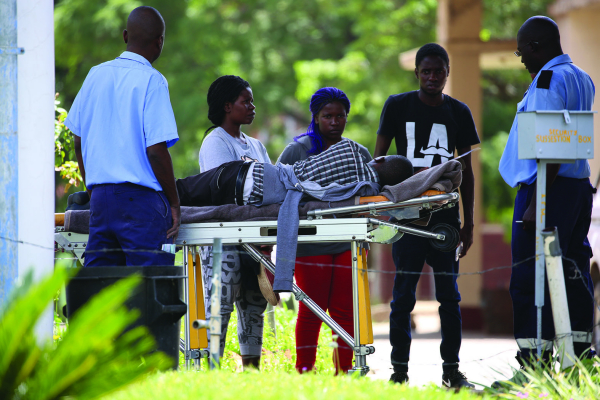
BY PHYLLIS MBANJE
The country’s public health facilities are experiencing an upsurge in the number of patients, posing serious challenges to quality service delivery with admitted patients now being housed in physician bays while others are spending hours queuing in corridors.
This follows a dramatic increase in medical fees in private practice as well as medical aid contributions. In the past few months, most medical aid insurers upped their monthly charges, making it impossible for the majority of citizens to continue using medical aid facilities.
The increases were brought about by the general rise in the cost of health services that the country has been experiencing. Drug and sundry costs have trebled, while hospital fees have increased by at least 100%.
Pharmacists, who have not been getting adequate foreign currency, are now demanding payment in hard currency. Medical aid schemes upped their contribution rates to stay afloat.
First Mutual wrote to its clients informing them that it was hiking contribution rates by 35%.
“Scheme has been absorbing the costs while continuing to engage service providers in an effort to find a viable solution. However, we have noted that our members still face challenges with card acceptance and shortfalls,” the company said.
Cimas raised its members’ contribution rates by between 20 to 30% from February.
- Chamisa under fire over US$120K donation
- Mavhunga puts DeMbare into Chibuku quarterfinals
- Pension funds bet on Cabora Bassa oilfields
- Councils defy govt fire tender directive
Keep Reading
Many patients are now opting for public hospitals which are cheaper, but under-equipped.
During a recent visit by NewsDay to some public hospitals like Harare Central, Parirenyatwa and Chitungwiza, the wards were packed.
Relatives of patients at Harare Hospital said they were not amused by the fact that government was not paying attention to public health institutions which needed serious expansion to accommodate the rising number of patients.
One of the oldest referral hospitals, Harare has struggled with overcrowding for years.
Parirenyatwa Hospital, which has also been swamped by patients who can no longer afford medical care elsewhere, has been experiencing financial challenges.
Parirenyatwa Hospital spokesperson Lenos Dhire said they were receiving an unusually high number of patients at the institution.
“We confirm that we are experiencing an upsurge of patients presenting to the hospital. Although the situation is posing some challenges, our physicians and nurses are doing everything possible within their capacity to ensure that all the patients receive treatment,” Dhire said.
On Monday, Chitungwiza Hospital spokesperson Audrey Tasaranarwa said all wards were full.
Health stakeholders have implored government to address the underlying causes of the sudden influx of patients.
“Medical aid patients cannot afford the services being charged, which can be as high as US$150 for one night admission. Those on medical aid will be told that your funds have been exhausted and to top up in US,” Fungisayi Dube of the Citizens Health Watch, said.
She added that these challenges show the need for a relook at issues such as health financing which would make it possible to build another hospital.
Community Working Group on Health director Itai Rusike said the facilities were overburdened mainly because of the poor referral system since the two metropolitan provinces do not have district and provincial hospitals, forcing patients to come there instead.
“This calls for the revival of the debate on setting up a national health insurance scheme. We can learn something about sustainable health financing schemes from countries like Rwanda.











